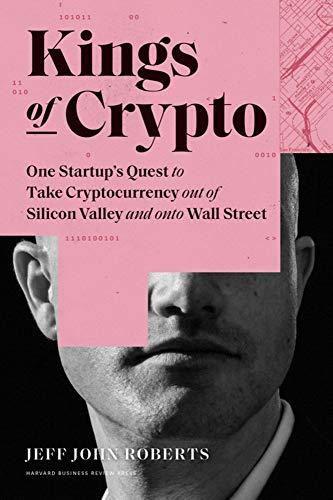By: Kevin Chong
If you had doubts over whether the latest cryptocurrency correction would make mainstream news, you needed look no further than the House of Commons this week. In a duel between Ed Miliband and Rishi Sunak, the Labour frontbencher used the current price plummet as his attack line:
“Crypto has crashed and so has the Chancellor,” he raged, arms aloft. “How similar they are. They came out of nowhere, the value surged, and they looked like the future. But it’s all turned out to be one giant Ponzi scheme.”
This might seem an overly harsh assessment of a technology that’s been changing the world and making headlines for the last five years. Though the two largest cryptocurrencies – Bitcoin and Ethereum – have fallen over 30 per cent since January, is this merely another dip to be followed by a whiplashing high?

Sam Bankman-Fried, CEO of cryptocurrency exchange FTX, was right when he said Bitcoin was unlikely to have a future as a payments network. The long-term reasons are inescapable. Bitcoin in particular is dreadful for the environment, with research from the University of Cambridge showing that if it were a country, it would be in the top 30 electricity consuming nations worldwide. Add to this the inherent scale inefficiencies (the Bitcoin network is incapable of handling large amounts of transaction data in a short timeframe) and you have an existential problem. Even if the price does shoot back up, which wouldn’t be surprising given its volatility, this feels far from the future of payments.
As investors, and particularly those with a focus on fintech, one of the first questions our team asks is “what real-world problem is this solving?”. Financial technology has the potential to address global and pressing issues.
Start-ups like PrimaryBid are democratising access to IPOs so everyone has fair access; IslamicFinanceGuru (IFG) supports one of our largest communities on their investment, personal finance and entrepreneurial journeys, tackling discrimination, under-representation and poverty head-on. But cryptocurrencies feels like a solution in search of a payments problem.
The incumbent global payment networks may not be perfect, but they are reliable and regulated. When it comes to cross border money remittance (a huge challenge for the developing world and its diaspora), the likes of Wise and Azimo have vastly improved transfer speed and cost, making a very real difference to the lives of many. Which begs the question; do we really need an alternative, decentralised, and unregulated payment network?
For these reasons, it certainly feels as though the crypto market’s first chapter, one of technological scrutiny, is complete.
Chapter two will focus on digital assets with real value. Algorithmic stable coins can be used in profound ways, and there are massive opportunities to apply crypto and blockchain technology to social networks, entertainment, and sport.
There’s also increasing demand for adjacent businesses that service and enable the crypto economy, as demonstrated by the recent impressive capital raises from BVNK and Januar. Both these companies, based in London and Denmark respectively, further confirm that Europe will be a key crypto market globally. The continent was the world’s most active crypto economy in 2021 according to Chainalysis, receiving $1tn of digital assets.
It is no wonder, therefore, that Rishi Sunak has said he wants to make the UK a global crypto hub, even threatening us with a Treasury NFT (non-fungible token). As a global fintech leader, the UK is naturally well placed to be a global crypto hub but, at the end of the day, the Chancellor, crypto entrepreneurs and us investors must keep asking “what real world problem are we solving”?
Share this article









